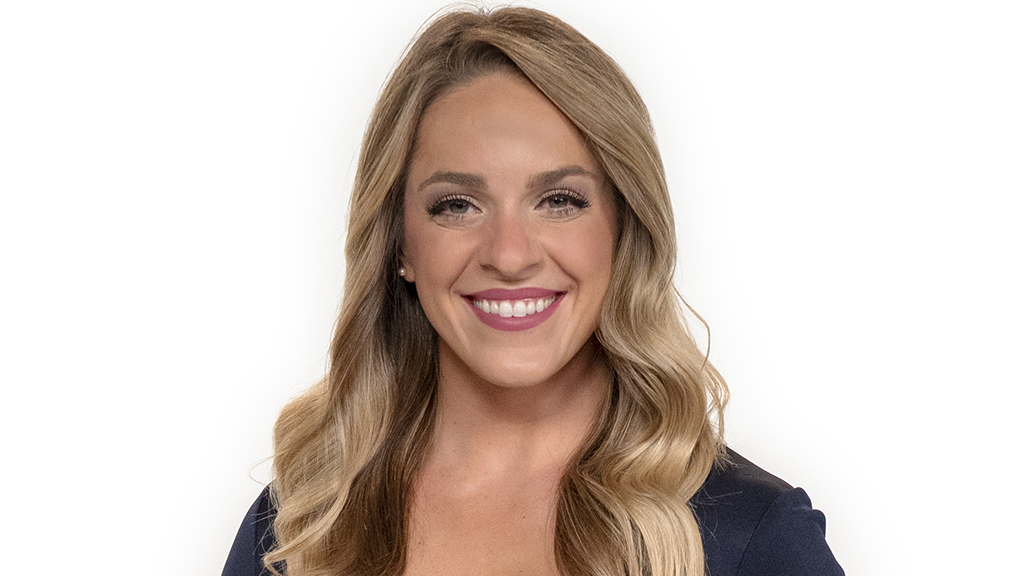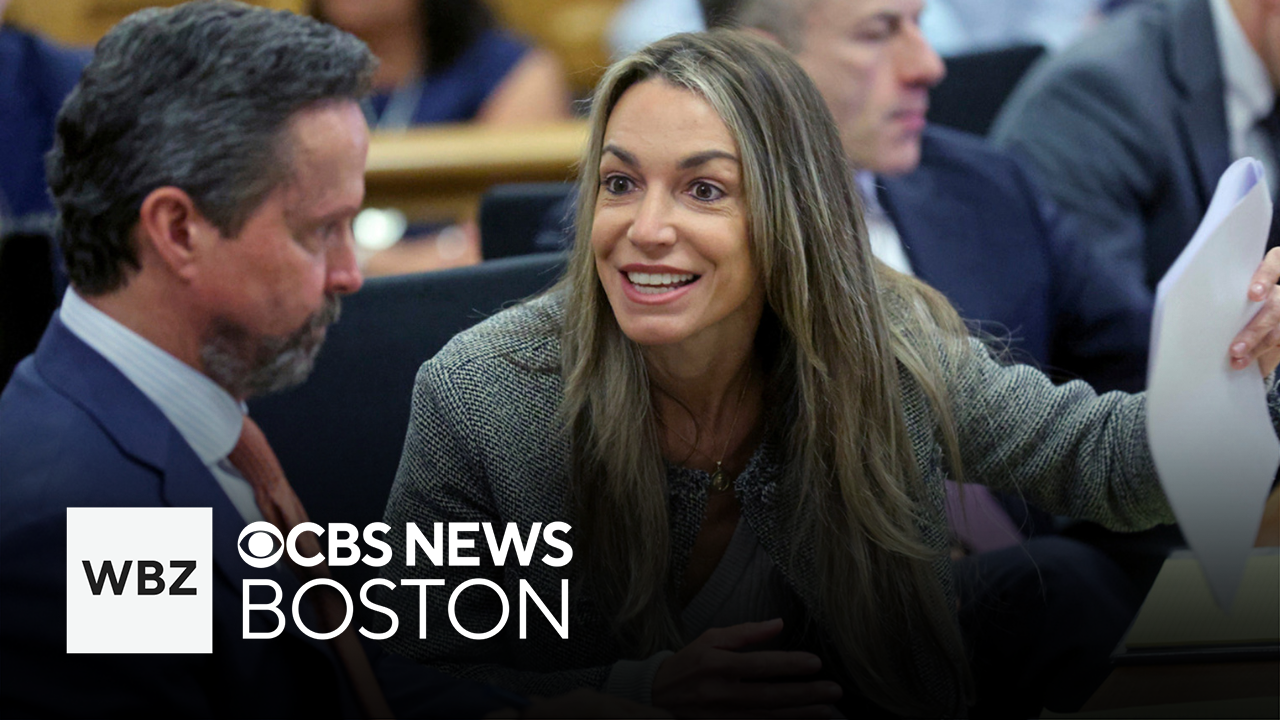Karen Read defense calls final witness, jury could get case as soon as Friday
Jurors in the high-profile Karen Read trial could begin deliberations as early as Friday as defense attorney Alan Jackson called his final witness on Tuesday. The prosecution is expected to call several rebuttal witnesses in the coming days before attorneys give closing statements.
Read's trial appears to be entering its final days inside Norfolk Superior Court in Dedham, Massachusetts. Read said she does not plan to testify in the retrial.
Dr. Elizabeth Laposata, the former chief medical examiner for Rhode Island, testified under direct questioning that John O'Keefe's injuries were not consistent with being struck by a vehicle. She later faced questions from the prosecution over her response to the deadly Station nightclub fire.
When Laposata finished her testimony Tuesday afternoon, Dr. Andrew Rentschler from ARCCA was called. He is the final witness before the defense rests its case. Rentschler testified for just under an hour on Tuesday. He will return Wednesday and is expected to finish his testimony after several hours.
When Rentschler is done, Special prosecutor Hank Brennan will likely call back a Dr. Judson Welcher, the prosecution crash expert who testified already, for rebuttal testimony. Welcher could take the stand Wednesday, depending when Rentschler finishes.
"We'll figure out where we are Thursday. It seems that the case may be ready to go to the jury Friday, maybe Monday at the latest," Judge Beverly Cannone said after jurors left for the day.
Read is facing trial for the second time, accused of hitting and killing her boyfriend, Boston police officer O'Keefe, and leaving him to die in the snow outside a Canton home. She claims she is being framed by several people, including law enforcement.
Karen Read's defense calls final witness
Rentschler took the stand just before 3 p.m.
He worked with crash reconstructionist Dr. Andrew Wolfe at the engineering consulting firm ARCCA, which has been at the center of contentious hearings throughout Read's trial. Wolfe finished testifying Monday after two days on the stand. ARCCA was hired as part of the now-closed federal investigation into how police handled Read's case.
Rentschler began by going over his credentials and what ARCCA does.
Rentschler said he reviewed O'Keefe's injuries and found there were largely only two areas of interest. O'Keefe had head injuries, and cuts on his right arm.
Once all witness testimony is finished in the coming days, closing statements will be held and the jury will get the case. Rentschler is the 11th defense witness called. Brennan called 38 witnesses so far, with more now expected.
Dr. Elizabeth Laposata faces questions about Station fire
Laposata, now a Brown University professor, was back on the stand for direct questioning starting Tuesday morning. She was first called Monday, answering questions from Jackson. Jackson questioned Laposata until just before noon on Tuesday. Brennan then took over cross-examination.
Jurors were dismissed for the lunch recess after Brennan asked for a sidebar. Without the jury present, Brennan said he wanted the judge to allow him to question Laposata about what he believes are flaws in her credentials.
Specifically, Brennan wanted to question Laposata about her response in the aftermath of the Station nightclub fire in Warwick, Rhode Island that left 100 dead. Laposata faced criticism for the amount of time it took her to arrive at the scene. Jackson disputed the argument, saying "I don't believe the Station fire has anything to do with anything" involving Read's case.
Brennan also asked to question Laposata about a 2005 audit by the Rhode Island Health Department that the prosecutor said "paints a very different picture than what was presented on direct examination." Brennan said the audit found no reports, incomplete reports, and unsigned reports of over 1,500 individuals between June 30, 2000 and June 30, 2005. Laposata resigned from her position in 2005.
In terms of the audit, Jackson called it a "25-year-old political fight." Jackson added there was never a suggestion an autopsy was not performed efficiently and in a timely fashion. Jackson said the backlog was because Laposata is such a perfectionist that she insisted on being a second set of eyes on all autopsies in her office.
Cannone ruled that Brennan can question Laposata on the issues.
Brennan asked about the Station nightclub fire response after the lunch recess. He asked if it was true that she received criticism for not responding to the scene despite being called for 17 hours.
"There was a flurry of negative press without any basis," Laposata said. "Nobody called me to come to the scene. Medical examiners are not first responders."
Laposata said she was in constant communication with people from her office who were at the scene and she was at the office preparing to work 24 hours a day.
"There was no need for me to go to the scene because I had my investigator there and my job would be at the office to get things set up to handle the influx of the deceased," Laposata said.
Brennan asked Laposata if she resigned in 2005.
"Yes because my budget was going to be cut and I knew if I had to get rid of a medical examiner, we couldn't do a good job for the state," Laposata said.
Dr. Elizabeth Laposata cross-examination
Earlier on cross-examination, Brennan highlighted that Laposata said she believed O'Keefe would have died within 10-15 minutes of suffering his brain injury.
Brennan mentioned that there are many trauma centers in Massachusetts where O'Keefe could have received potentially life-saving treatment.
"In this case, you don't have any objective criteria to identify the amount of time Mr. O'Keefe would have lived if he had the appropriate help. Is that fair to say?" Brennan asked.
Laposata said she did not think it would have mattered because O'Keefe had massive skull fractures to the base of the skull.
Brennan asked Laposata about other evidence she considered. He asked if she looked at evidence from Read's Lexus SUV.
"Well it didn't hit him so it doesn't matter," Laposata said.
Brennan followed up, asking if she was not interested in information about the vehicle because she had already formed her opinion.
"It did not hit him so it was not relevant to my opinion. By looking at the body I could tell that there was no evidence of impact with a vehicle. So whether the vehicle was going slow or fast was not relevant," Laposata said.
John O'Keefe's injuries
Laposata was asked on direct examination about O'Keefe's brain injury.
"He would be immediately incapacitated with a decreased level of consciousness. Once he received that impact on the back of the head, he would not be able to make any purposeful movements," she testified. "There might be some arm jerking or some seizure activity. But he would not be able to get up, he wouldn't be able to walk. He wouldn't be able to do any purposeful activity. He would be severely concussed, unconscious, not able to walk, not able to carry out purposeful activity."
Laposata said when she looked at photographs from 34 Fairview Road in Canton, specifically in the area of the yard where O'Keefe's body was found, she did not see anything that would have caused his head injury.
When called by the prosecution earlier in the trial, medical examiner Dr. Irini Scordi-Bello said that after inspecting O'Keefe's body she determined that hypothermia contributed to his death, but she could not make a determination if he would have died from that alone if he had no injuries.
Laposata testified on Tuesday that she disagreed.
"No. The body did not have any hypothermia," Laposata said.
Defense attorneys questioned Scordi-Bello on May 15 about if hemorrhaging in O'Keefe's pancreas and stomach could have been from first responders using a LUCAS machine for chest compressions, instead of being a sign of hypothermia. Scordi-Bello said it was possible.
Laposata estimated that O'Keefe would have been the subject to about 30,000 compressions from the LUCAS machine. She said that would have caused damage to O'Keefe's body.
She said that in her opinion, O'Keefe's cause of death was brain injuries and blunt force trauma of the head.
Laposata also answered questions about X-rays of O'Keefe's right arm. "The bones in the right arm were intact," Laposata said.
Outside court, WBZ-TV's Kristina Rex asked Read why jurors were seeing the X-rays for the first time. "The Commonwealth didn't present them," Read said. "They were in the autopsy."
WBZ legal analyst Katherine Loftus said Laposato did well for the defense. "The manner in which she presents is very credible," Loftus said. "She was not rattled at all on cross-examination."
Heated arguments over dog bite testimony
On Monday, Cannone ruled Laposata could not testify about her opinion that cuts on O'Keefe's right arm were from a dog attack.
Before jurors were brought in Tuesday, attorneys argued a defense motion to reconsider the decision.
"Those injuries on John O'Keefe's arm are from a dog. Period. Full stop. Anything less than presenting that to the jury at this point would be to perpetrate an intentional fraud on this jury. Ms. Read is entitled to more, she's entitled to better, she's entitled to the evidence," Jackson said.
Jackson argued that the prosecution opened the door for Laposata to testify on the topic by mentioning her during cross-examination of dog bite expert Dr. Marie Russell.
Cannone left the room briefly to consider the arguments. She returned and said she would not allow the dog bite testimony. Jackson called the ruling "outrageous."
He asked Cannone if Laposata could testify that the injuries are consistent from what she has seen in an animal bite. Cannone said that with a brief foundation laid, that will be allowed, but Jackson is not allowed to display an animal jaw photograph that he wanted to show jurors.
With Laposata on the stand, Jackson laid the foundation for his line of questioning about animal attack injuries.
"Yes. It is. Very much," Laposata said when asked if the injury to O'Keefe's arm was consistent with an animal attack.
Jackson asked if O'Keefe's injuries correspond with being hit by a vehicle. "No. Not at all," Laposata responded.
"Those injuries are patterned injuries from an animal bite. We have the canines, we have the incisors," Laposata began her explanation, but was interrupted by Cannone, who called attorneys to speak to her.
"I'm going to strike that and we'll see you at sidebar," Cannone said.
Read has pleaded not guilty to charges of second-degree murder, manslaughter while operating under the influence of alcohol and leaving the scene of personal injury and death. Read's first trial in 2024 ended with a mistrial due to a "starkly divided" hung jury.





